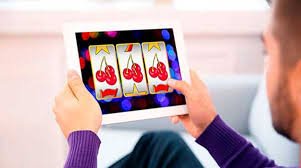Everyone says practice with free play before risking real money. But after three months of split testing—alternating between demo games and real cash sessions—I discovered that advice is only half right.
Free play teaches you game mechanics. Real money teaches you everything else that actually matters.
Here's what each mode taught me, and why you need both to become a competent gambler.
When starting this experiment, Luckywave Casino provided ideal testing conditions with their comprehensive welcome package offering up to EUR 15,000 across four deposits and demo versions of their entire game library.
The Great Learning Experiment
I structured my test around blackjack and slots—two games requiring different skill sets. Each week, I'd spend equal time in both modes:
- Monday/Wednesday/Friday: Real money sessions ($25 budget per day)
- Tuesday/Thursday/Saturday: Free play sessions (unlimited virtual chips)
- Sunday: Review and compare what I learned
After 12 weeks, the differences were stark.
What Free Play Actually Teaches
Game mechanics mastery: Demo mode excelled at teaching rule sets without financial pressure. I learned European roulette's neighbor bets, understood slot payline structures, and grasped blackjack basic strategy—all without losing a cent.
Feature exploration: Free play let me trigger bonus rounds repeatedly to understand their mechanics. I spent hours activating free spins features, learning which symbols mattered, and understanding multiplier patterns.
Perfect example: Book of Dead's expanding symbols made no sense until I triggered the feature 20+ times in demo mode. Real money sessions would have cost $200+ for that education.
Sites offering play for fun no money options became invaluable during this learning phase, allowing unlimited exploration of complex slot mechanics without any financial commitment.
Risk-free experimentation: I tested betting systems, tried different stake levels, and explored games outside my comfort zone. The Martingale system looked brilliant in demo mode—I "won" consistently for weeks.
Where Free Play Fails You
Emotional detachment: Playing with fake money feels nothing like real gambling. My heart rate never increased, I never felt the stomach-drop of bad beats, and wins felt hollow. Demo mode can't replicate gambling's psychological reality.
Unrealistic bankroll management: With unlimited virtual chips, I developed terrible habits. I'd chase losses endlessly, make huge bets after wins, and ignore basic money management principles.
The illusion: My "Martingale success" in demo mode collapsed immediately with real money. A seven-loss streak burned through my $100 bankroll in five minutes—something impossible to experience with unlimited play money.
False confidence: Free play created overconfidence in my abilities. I thought I understood games completely until real money introduced emotions, time pressure, and actual consequences.
Real Money's Harsh Lessons
Bankroll management reality: Nothing teaches proper bet sizing like watching your actual money disappear. I learned to calculate session budgets, set loss limits, and understand risk of ruin—concepts meaningless in demo mode.
Emotional control development: Real money losses triggered genuine frustration, disappointment, and the urge to chase. Learning to manage these emotions while playing became crucial skill development unavailable in free play.
Learning moment: Down $40 in blackjack, I wanted to double my bets to "get even quickly." Demo mode never created this psychological pressure. Real money taught me to stick to basic strategy regardless of short-term results.
Time value awareness: With real money at stake, I paid attention to hourly win/loss rates. Sessions had natural endpoints when budgets were exhausted, teaching sustainable playing habits.
Variance understanding: Demo mode's unlimited bankroll masks variance reality. Real money showed me how even perfect blackjack play could result in five consecutive losing sessions—a crucial lesson for expectation management.
The Skill Development Gap
Strategy retention: I memorized basic blackjack strategy faster with real money because mistakes cost actual cash. Demo mode mistakes felt consequence-free, so I didn't internalize corrections as effectively.
Pattern recognition: Real money's emotional intensity enhanced my ability to recognize tilt, fatigue, and decision-making deterioration. These self-awareness skills are impossible to develop without genuine stakes.
Game selection: Free play made every game seem equally attractive. Real money taught me to evaluate games by RTP, volatility, and bankroll requirements—practical skills for long-term success.
Platforms like mystake france exemplify this learning curve perfectly—their diverse game portfolio looks equally appealing in demo mode, but real money play quickly reveals which games suit your risk tolerance and bankroll size.
The Hybrid Learning Approach
After 12 weeks, I developed an optimal learning strategy combining both modes:
Phase 1 (Free Play): Master game mechanics, understand features, test basic strategies
Phase 2 (Real Money - Low Stakes): Develop emotional control, practice bankroll management
Phase 3 (Real Money - Normal Stakes): Apply skills under realistic pressure
Key insight: Each phase builds on the previous one. Skipping free play wastes money on basic learning. Stopping at free play leaves you unprepared for gambling's psychological demands.
What Each Mode Teaches Best
Free play excellence:
- Rule comprehension
- Feature mechanics
- Basic strategy memorization
- Game comparison without cost
Real money superiority:
- Emotional regulation
- Bankroll management
- Risk assessment
- Decision-making under pressure
- Variance tolerance
- Session discipline
The Bottom Line
Free play teaches you how games work. Real money teaches you how to work with games—managing emotions, money, and expectations while playing.
Neither mode alone creates competent gamblers. Demo play without real money experience produces players who crumble under actual pressure. Real money without demo preparation wastes bankroll on avoidable basic mistakes.
Use free play to learn mechanics, then transition to real money to learn everything else that determines long-term gambling success.
 Online Clock
Online Clock